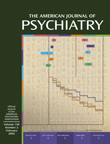Public and academic discourse has always been marked by consensus on certain points. In 1890, the psychologist William James began a discussion of attention with the statement that “everyone knows what attention is.” So it is with genes, and with their functional roles. From a public perspective, at least, we all know that they are the fundamental building blocks of heredity, are composed of DNA, and reside in discrete locations in chromosomes. We also know that the major products of genes are proteins, and that once we relate human disorders to abnormalities in specific genes, we will have come a long way toward understanding how these disorders might be treated. That this will happen is a certainty; only the time frame is debatable. The real question involves an understanding of how genes interact with the environment to produce specific traits or conditions. Right?
In fact, a dynamic philosophical and biological debate over the nature of genes and their products has been in evidence for more than a century, and no simple answer has emerged. Despite the continued ascendancy of the Central Dogma of molecular biology, the nature of genes, along with their ontogenetic and phylogenetic roles, is the subject of active debate. This controversy, and the inconsistencies between competing visions, is the domain encompassed by the editors of The Concept of the Gene in Development and Evolution. In four sections, basic conceptualizations of genes are revisited, including the relationships between genes and traits, the evolution of genes conceptually, views of genes through the prism of development, and broader conceptual frameworks.
For many an interested reader, some of the conclusions may be surprising. Genes are not fundamental, indivisible units of heredity per se, conceptually or even physically. They do not all code for proteins, and their identification as continuous stretches of DNA with initiator and terminator regions is inadequate. Depending on the context in which they are considered, genes may be structural entities (of various sorts), but they may also be emergent and variable units of reproductive and evolutionary processes. In this latter sense, they are themselves phenotypes, or traits. As the Human Genome Project in particular has raised hopes that a molecular genetic understanding of heredity is around the corner, it is important to recall that the genetic debate is not over and that some of the most fundamental issues remain unresolved. This book will help to inform that discussion and point us toward the right questions.

